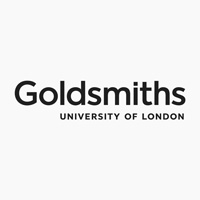fees waived
Computer Science (Cybersecurity), BSc (Hons)
Goldsmiths, University of London, United Kingdom
Ranking in UK
Computer Science
Computer Science and Information Systems
Computer Science
Costs
food & rent S$24.9K / year
Entry requirements
Scholarships
Limited quantity
Information
Code
Intakes
Website (External)
Programmes
Information
Duration
2028
This BSc Computer Science (Cybersecurity) degree equips students with specialized knowledge to secure operating systems and protect against digital threats in a global context. Students will explore cybersecurity principles, including identifying vulnerabilities in networks and operating systems, implementing cryptography, and developing secure software and websites. The program emphasizes practical skills in information flows across client-server and peer-to-peer networks, with opportunities for hands-on projects and a optional year-long industry placement to enhance employability and career prospects.The curriculum includes compulsory modules across three years, such as Introduction to Programming and Network and System Security, alongside optional choices like Data Programming for Artificial Intelligence. Assessment methods vary, incorporating coursework, exams, group work, projects, and placement evaluations, with successful completion potentially earning a 'with work experience' endorsement.
Year 1 In your first year, you'll take the following compulsory modules: Introduction to Programming User Experience and the Web Logic and Computer Architecture Computing Project 1 Graphics 1 Algorithms 1 Identity, Agency & Environment 1 Identity, Agency & Environment 2 Year 2 In your second year, you'll take the following compulsory modules: Software Development and Design Computing Project 2 Object Oriented Programming Networks and Operating Systems Information Security The Goldsmiths Elective You'll then take 2 optional modules from the following list: Data Programming for Artificial Intelligence Interaction Design Fundamentals of Computer Science Algorithms 2 Goldsmiths’ Social Change Module Optional placement year Our degrees include an optional industrial placement year after the second year of study. You'll be responsible for securing a placement, but we can support you through this process. The industrial placement year is a great opportunity for you to gain work experience, build confidence and contacts, develop your skills and industry insight, and enhance your career prospects. You'll be supported throughout your placement year by a placement tutor, who will provide you with guidance and liaison between you and your employer. Although we encourage you to take the opportunity of a placement year, you can also complete your degree in three years. Year 3 (or year 4 with placement year) In your final year, you'll complete the following compulsory modules: Final Project in Computer Science Network And System Security Cryptography You'll then use your remaining credits to take 2 to 3 optional module from a list provided annually by the Department of Computing. *Please note that due to staff research commitments not all of these modules may be available every year.
A local representative of Goldsmiths, University of London in Singapore is available online to assist you with enquiries about this course.

